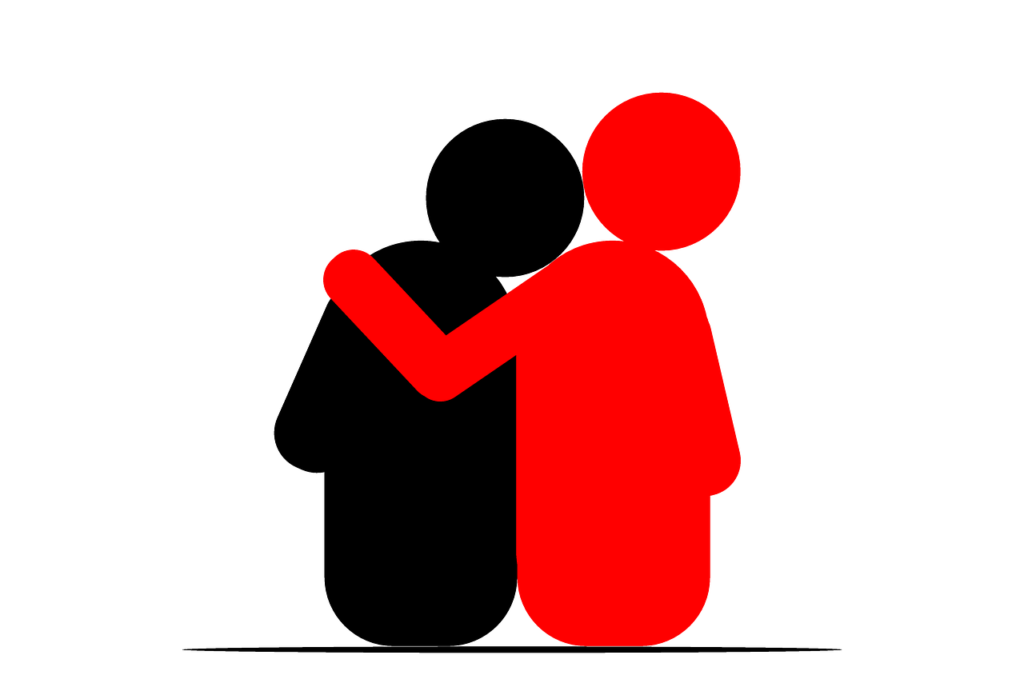Ever since my student days, when I first encountered the concept of sympathy versus empathy, I have to confess that I have never been able to fully and deeply grasp what these terms actually mean. Of course, for the purposes of exams and even interviews, we can learn and reproduce the definitions. We can talk confidently about how we can relate to, or reach out to those who need our help. We don’t feel pity or patronise. Easy to say, but actually applying these grandiose ideas in the real world is not always so straightforward.
Sympathy – (an expression of) understanding and care for someone else’s suffering
Empathy – the ability to share someone else’s feelings or experiences by imagining what it would be like to be in that person’s situation
How Do I Express Empathy?

Every single single day in clinic, I will encounter a patient whose daily existence is an overwhelming battle against continuous pain and the obstacles that it throws up. In this case find it very easy to feel sympathy. But, with the best will in the world, I am really in a position to offer true empathy? I truly believe that every patient has their own story to tell. If I can do nothing else, the least I can do is let them tell it. However, I do not have any pain, I enjoy every day of my job, and I spend what little spare time I have, with my family or riding my 1200cc BMW motorcycle along country lanes and coastal roads. With this in mind, how do I offer true empathy to somebody whose life is devastated with a diagnosis of CRPS or fibromyalgia?
After all this time, I’ve come to the conclusion that the nearest thing to empathy that I can offer is belief. Genuine and complete belief in every aspect of the story that my patient is telling me. I also give patients complete space to tell their story with only minimal interruption. However, this is easier said than done, and I believe that it takes years of practice.
Problem Solvers
Throughout medical training from student through to postgraduate levels, we learn to identify the problem, figure out the cause and fix it. That is our ‘raison d’etre’. However, this traditional teaching breaks down when we are presented, as is often the case, in chronic pain conditions, with unsolvable problems, or problems which cannot be fixed quickly. The thought process that is hard wired throughout medical education cannot cope with this concept and the natural instinct is to refer on to somebody else, order another scan, or dismiss the patient as unreliable.
How To Believe

This brings me back to concept of belief. Complete belief. Every patient is truthful and they are never malingering. This sounds like a simple idea, but it can be an incredibly difficult concept to get across to students and even fellows. The hard wiring is too strong and is difficult to break down. It may not be genuine empathy, but I think it is a close second best
The Good Lesson a Bad Doctor Taught Me About Chronic Pain
This featured article relates to a patient in chronic pain who appears to have been denied sympathy, empathy or belief. Pretty impressive from a single consultation. It makes good reading, for all the wrong reasons for any aspiring chronic pain specialist.
In instances where our ability to believe our patient breaks down, we, as medical professionals have failed and indeed, failed our patient. We have betrayed the trust that the public privilege us with. This is the saddest aspect of this featured article. Chronic pain patients tend to be realistic about the nature of their conditions and do not expect miracles. They do, like any other patient expect to be believed, and i sense that this betrayal of trust was what inspired the writing of the article, rather than the lack of treatment.
Sympathy Versus Empathy
So, after all this time, I think I’m still a bit in the dark about the concept of ‘Sympathy Versus Empathy’. The subject is addressed in this excellent video by Professor Brené Brown PhD, LMSW from the University of Texas. She manages to sum up in 3 minutes, what I’ve spent a professional lifetime trying to figure out.


Fibromyalgia, chronic pain, Anxiety, ptsd is so REAL.
Just because we look ok on the outside people tend to think we are ok. So sick of hearing do u feel any better? NO we never feel better! Every day 24/7 is a struggle. Awareness is much needed! 🙏🏼💜☮️✝️